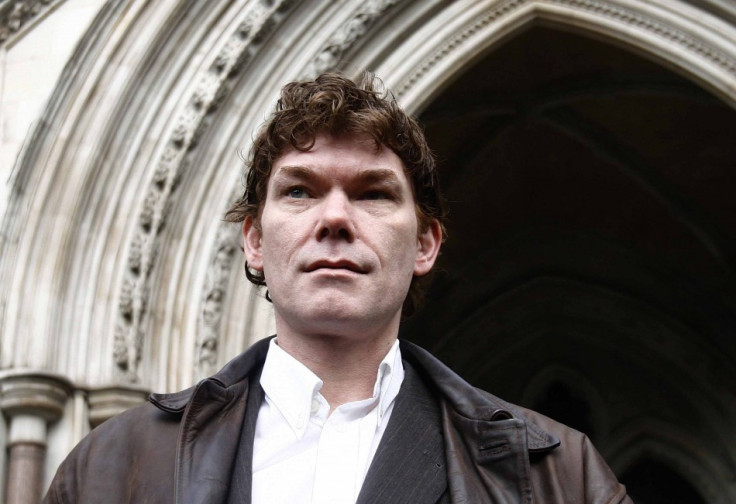Hacker Gary McKinnon Will Face No Criminal Action in UK
Scottish computer hacker Gary McKinnon won't be put on trial in the UK, following the government's decision not to extradite him to the US.

Two months ago, Home Secretary Theresa May announced she would not be extraditing McKinnon to the US to face seven charges of computer hacking, where he could face up to 70 years in jail. The Home Secretary asked the DPP to decide if McKinnon should face trial in the UK.
A joint committee comprised of officials from the Crown Prosecution Service (CPS) and the Metropolitan Police Service was convened and today it was announced that McKinnon won't face any trial in the UK over the cyber-attack.
A joint statement said:
"The potential difficulties in bringing a case in England and Wales now should not be underestimated, not least the passage of time, the logistics of transferring sensitive evidence prepared for a court in the US to London for trial, the participation of US Government witnesses in the trial and the need to fully comply with the duties of disclosure imposed on the CPS. The prospects of a conviction against Mr McKinnon, which reflects the full extent of his alleged criminality, are not high."
The statement also says the US authorities had been consulted and they would have been willing to to co-operate with a prosecution in England and Wales if that would "serve the interests of justice." However they do not consider that making all the US witnesses available for trial in London and transferring all of the US material to this jurisdiction would be in the interests of justice.
Biggestm military hack
McKinnon, 36, was accused in 2002 of carrying out what was called the "biggest military computer hack of all time" when he hacked into 87 United States military and NASA computers over a 13-month period between February 2001 and March 2002, at his girlfriend's aunt's house in London, using the name 'Solo'.
Following the attack, the after discussions between the US authorities, the CPS and the police in the UK, it was decided that McKinnon should stand trial in the US. In November 2002, McKinnon was indicted by a federal grand jury in the Eastern District of Virginia.
The indictment contained seven counts of computer-related crime, each of which carried a potential ten-year jail sentence.
The US immediately sought McKinnon's extradition but he has been fighting this in the UK and European courts for the past decade. During this time McKinnon remained out of jail, though since June 2005 he has been subject to bail conditions, having to sign in at his local police station every evening and to remain at his home address at night.
Appropriate
The decision that the appropriate place for McKinnon to be tried was the US was affirmed in 2009 but subsequently challenged in the High Court.
That challenge failed. As Lord Justice Stanley Burnton said in his judgment: " [It is] the decision of the DPP, which I consider to be lawful and unchallengeable, not to prosecute him here... the USA is the appropriate forum for his prosecution."
On 16 October, the Home Secretary Theresa May decided not to extradite McKinnon to the US on the basis of his health. She said at the time: "Mr McKinnon's extradition would give rise to such a high risk of him ending his life that a decision to extradite would be incompatible with Mr McKinnon's human rights."
McKinnon was diagnosed with Asperger's Syndrome in 2008 and his mother Janis Sharp claimed he was suicidal and would not be able to survive within the US prison system.
In a number of interviews since 2002, McKinnon has admitted he obtained unauthorised access to the computer systems in the United States. He said that his motivation was to find evidence of UFOs, antigravity technology, and the suppression of "free energy", all of which he claims to have proven through his actions.
© Copyright IBTimes 2025. All rights reserved.






















